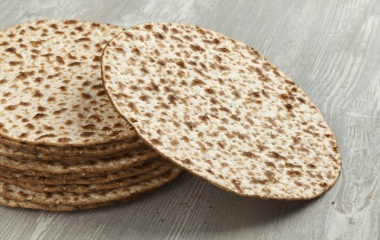
The Gemara (Pesachim 68b) records a debate as to the proper way to celebrate Yom Tov. Rabbi Eliezer says that one must make a choice; we must either “eat and drink, or sit and learn”, whereas Rabbi Yehoshua says, “Divide it—half for eating and drinking, and half for the beit midrash”. Rav Yochanan (living three generations later) explains that this argument is actually rooted in contradictory Biblical texts. Regarding the laws of Shemini Azeret, the Torah says “azeret teheyeh lachem, it shall be an assembly for you” (Bamidbar 29:35); whereas by Passover, the Torah says “azeret laHashem Elokecha, an assembly for G-d” (Devarim 16:8). R. Yehoshua explains that the only way to satisfy the requirement of both an “assembly for G-d” and “an assembly for you” is to split our time—half for eating, and half for study. R. Eliezer, in a somewhat perplexing interpretation, suggests that the Torah presents two mutually exclusive options regarding celebrating Yom Tov, and we are to choose the approach that speaks to us[1].
It appears that this argument is rooted in much more than Biblical exegesis, and reflects two approaches to the mitzvah of Yom Tov in particular and life in general. R. Yehoshua teaches that we need a balance between the material and the spiritual. G-d created both a body and a soul, and they must both be nourished to create a healthy human being. R. Eliezer disagrees—the body and soul are in conflict almost by definition, with the former seeking physical pleasure, and the latter, spiritual serenity. To try and satisfy both will mean neither is fully nourished. Thus, one must choose: either worship G-d through a focus on spirituality, or by elevating the material in life. To put it in more modern nomenclature, either learn intensively in kollel or focus on business (and philanthropy), as to excel in either requires complete devotion and focus. It is worth noting that the halacha follows the view of R. Yehoshua.
Interestingly, a few lines later the Gemara is puzzled by another anomaly in the Biblical text. “And you shall afflict your soul on the ninth of the month [of Tishrei], from the evening to the evening” (Vayikra 23:32). But is the fast not on the tenth? asks the Gemara. Rather, it comes to teach that “whoever eats and drinks on the ninth, the Torah ascribes [merit] to him, as he is considered as if he fasted on the ninth and the tenth” (Pesachim 68b). Eating on the ninth of Tishrei is no less important, and equally rewarded, as fasting on Yom Kippur. One can and must worship G-d both by feasting and fasting. While mitzvoth may at times be a “burden”, they offer so many opportunities for rejoicing.
[1] The Talmudic discussion is on the level of derash, explicating the meaning hidden within the text. On the level of peshat, the plain meaning of the text, one might explain that on Pesach, the goal is to acknowledge G-d as our Redeemer. The Jewish people were passive onlookers in the process, and Moshe’s name is not even mentioned in the Haggadah. Pesach is an assembly to G-d. During Sukkot and Shmini Azeret, on the other hand, the focus is on our celebration of the harvest. It is a time for man to rejoice (interestingly, the mitzvah of simcha is mentioned twice by Sukkot, and not at all on Pesach), and in marked contrast to Pesach, there are no specific mitzvoth one must observe on Shmini Azeret. It is an assembly to man.



